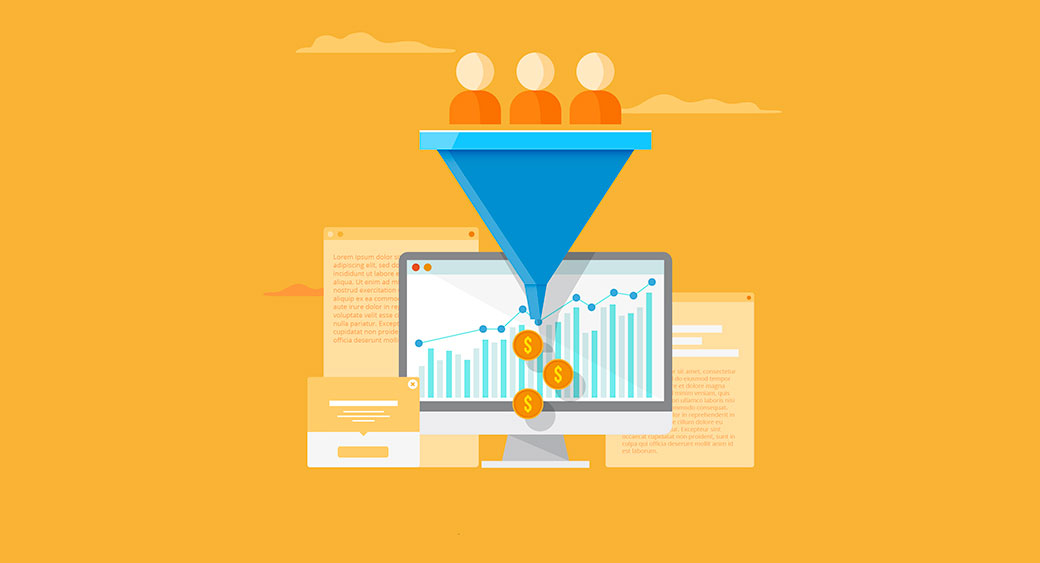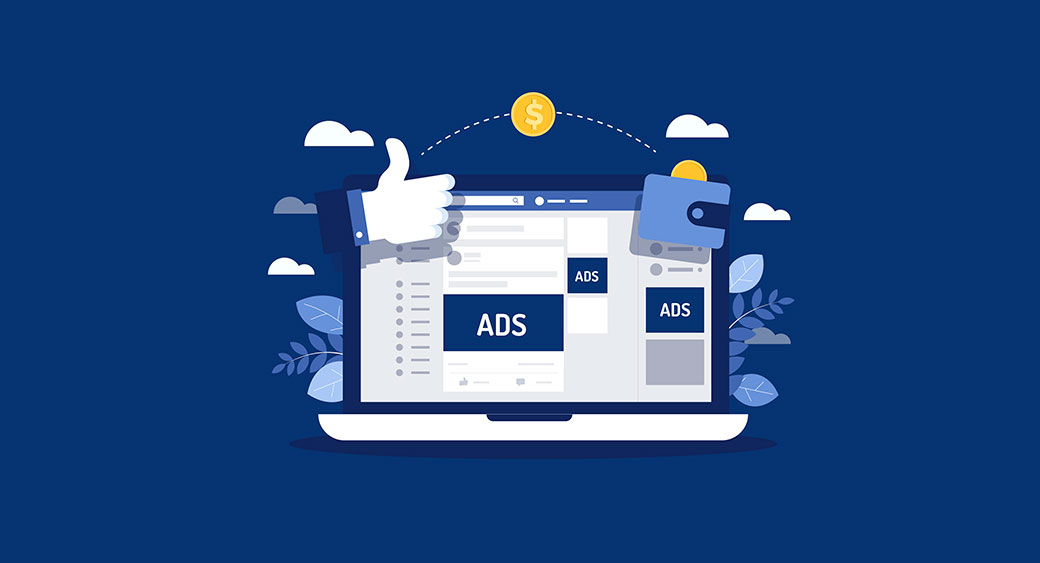What Is Performance Marketing and How to Use It
Some methods change marketing forever and make marketers reconsider their strategies. One such method is performance marketing. Performance marketing has changed how marketers evaluate their campaigns’ success and how businesses sell their products and advertise them. Thanks to performance marketing, you can measure your marketing efforts’ effectiveness in detail, including a conversion rate of a particular ad and brand reach.

Performance marketing is especially relevant in our data-driven age. Marketers always work with data because it enables them to get actionable insights into their campaigns’ performance and make the necessary adjustments. They can improve the acquisition process, making it less expensive. Advertising also becomes more and more transparent as marketers develop strategies with proven returns on investment. Businesses always want to increase ROI and minimize acquisition costs, so performance marketing is popular.
Many people who have never heard about this approach may ask: “So, what is performance marketing?” Before we detail and consider some of the best performance marketing practices, let’s figure out what performance marketing is and what makes it different from other approaches.
What Is Performance Marketing?
Big companies can spend millions of dollars on their branding strategies. However, not all businesses can afford that, and most companies have to focus on the bottom line if they want their businesses to bring profits. Thanks to performance marketing, companies can determine what action they want to happen, and once that action is completed, they pay for it.
Performance marketing is a term used when referring to different practices. The simplest performance marketing definition is that it’s an approach that enables companies to pay for the actual results of their campaigns. It combines brand marketing with paid advertising and allows businesses to pay for a particular result. Such an approach benefits publishers and retailers by enabling strategic thinking, focusing on actual performance, and increasing ROI.
When businesses pay for a specific action, they can be sure that they spend their money correctly because their target audience is already being converted, even before the business pays for a certain transaction. Your company can pay for certain actions while receiving additional free benefits, including targeted clicks and brand exposure. Now that you know a simple answer to the question “What is performance marketing,” let’s consider why marketers choose this approach and its benefits in more detail.
The Benefits of Performance Marketing
Performance marketing campaigns offer several benefits. First of all, they are easy to track because the accurate evaluation of marketing effectiveness is one of the key principles of performance marketing. Given that such campaigns focus on actual results, they are also associated with low risk. These campaigns also focus on ROI, which helps businesses plan their budgets.
Performance marketing offers a unique advantage through the use of Performance Management Tools. These tools allow businesses to accurately measure their marketing efforts using advanced technology and smart ad platforms. The main feature of performance marketing is that businesses can measure their efforts using advanced technology and smart ad platforms. When you run a performance marketing campaign, you can track all the necessary metrics, get detailed reports, analyze the data, and understand what you should change in your strategy to make it more effective.
Since performance marketing focuses on ROI, it is significantly less risky for advertisers. Thanks to low risk, businesses can launch their campaigns much quicker, saving time on approvals. In traditional methods of advertising, advertisers have to pay fees in advance. Brands must pay the same costs for ad space regardless of how a campaign performs.

As a result, many companies waste hundreds of thousands of dollars on their campaigns without getting any conversions. Marketers waste about 26% of their budgets. Therefore, another answer to the question “What is performance marketing?” is that this approach can help you only pay for good results. Besides, measurable ROI makes a huge difference in digital marketing because you cannot optimize and improve your campaigns without gathering and analyzing the data.
Is Performance Marketing Different From Affiliate Marketing?
One of the most common reasons why marketers ask, “What is performance marketing?” Many people confuse it with affiliate marketing. “On the one hand, you can use these two terms interchangeably in some situations. On the other hand, affiliate marketing is just a part of performance marketing in a broader context,” explains Dana Hamilton, a digital marketer from the review website Pick The Writer. As we’ve mentioned above, performance marketing includes many different techniques, including search, influencer, affiliate, email, etc. Performance marketing can be any strategy that involves exchanging certain completed actions for a commission.
Affiliate marketing appeared long before performance marketing, and many companies still use this approach. However, we now have influencer marketing, loyalty partnerships, coupon campaigns, and many other techniques that have expanded our understanding of performance-based marketing. As a result, affiliate marketing has evolved and given a start to numerous performance-based strategies characterized by high ROI, effective customer acquisition process, high consumer engagement, and market expansion.
What is performance marketing? We recommend looking at different channels used in performance-based campaigns to understand this approach.
Performance Marketing Channels
Do you want to discover how to boost traffic? Explore the best performance marketing channels below.
Social Media Advertising
It becomes more difficult for marketers to get the desired results from their social media campaigns by relying on organic reach. As a result, companies invest more in social media advertising and make it one of the key elements of their performance marketing campaigns.

One of the benefits of social media advertising is that it provides a variety of performance marketing metrics, including cost per click (CPC), click-through rate (CTR), and the general ROI of the campaign. The success of your social media advertising, to a large extent, depends on your objectives. For instance, you might want to increase your sales, traffic, lead generation, or engagement. You should also determine your demographics and segment your audience for accurate targeting.
Native Advertising
People don’t like ads, and about 30% of your audience uses ad blockers. People who don’t use ad blockers are trained to ignore advertising content. Fortunately, native advertising allows you to create click-through opportunities on various online sources where your target audience consumes content. This approach is also very effective: native ads get ten times as many clicks as other types of online advertising.
You can use native advertising if you choose the right publishers and offer valuable content useful for your audience. To create an effective native advertising campaign, you should set clear goals and dedicate enough time to creating actionable and engaging content that will serve as the basis for your strategy. You should also analyze the data to optimize your campaign and to be able to adjust your budget. It’s also important to compare data for different periods and revise your strategy to meet your audience’s needs and expectations.
Search Engine Marketing (SEM)
Search engine marketing lets you increase your brand visibility and get more clicks using paid advertising and organic search. This is one of the most popular marketing channels because it helps companies show their ads to people ready to purchase their products or services. The success of SEM, to a large extent, depends on the chosen keywords. Therefore, before you launch your search engine campaign, you should research keywords and determine what are relevant to your products and brand.
You should also take into account the fact that different keywords involve different levels of competition. For instance, keywords that include words like “deal,” “discount,” “free shipping,” or “buy” are the most competitive and, therefore, the most expensive. The whole process is based on an auction system, and if you want to succeed, you should understand the specifics of the bidding process.
Sponsored Content
Sponsored posts and articles can be considered another type of native advertising. Sponsored content enables you to drive high-quality traffic, increase your brand visibility, and boost conversions. People read various publications whenever they want to check out news or learn something new. Sponsored content enables your brand to communicate with your audience in a natural environment.
Don’t forget that your sponsored content should be valuable. No matter whether it’s entertaining or informative, it must be useful for readers. This way, you will increase brand awareness and boost website traffic.
Affiliate Marketing
We’ve already mentioned that affiliate marketing is a predecessor of the performance marketing concept. This type of marketing remains very popular. According to statistics, it drives as many e-commerce sales as email marketing. You can have many affiliates who will send traffic to you and get a commission for a certain action. Most often, affiliates get paid for sales. Affiliate marketing often demonstrates features of the native approach, as publishers include links to your products within their organic content.

As you can see, the right answer to the question “What is performance marketing?” is that it’s a general principle used in many digital marketing methods. Nevertheless, different types of performance marketing have a lot in common. For instance, you may deal with the same terms regardless of your chosen approach.
Performance Marketing Terms
Cost per click (CPC). This model enables advertisers to pay for each click on their advertisement.
Cost per impression (CPM). In this case, you can pay not for clicks, but your advertisement is shown a certain number of times. Usually, brands pay for 1,000 times a publisher has shown their advertisement to the audience.
Cost per lead (CPL). In this case, you can pay every time you get a signup form from potential customers who became interested in your offer because of the advertisement.
Cost per sales (CPS). This model implies that an advertiser should pay if an ad generates a sale.
Cost per acquisition (CPA). You can determine what you mean by acquisition. For instance, you can pay for form completion, clicks, or sales.
Tips for Successful Performance Marketing
You need to know the crucial performance marketing tips to achieve great results.
Create a Good Landing Page
You should focus on a strong offer and do your best to create a compelling landing page. You don’t want visitors to click through your page, so you must ensure a good user experience. If your landing page doesn’t work properly, it will repel your potential customers and partners. Therefore, we recommend updating pages that don’t demonstrate the necessary performance and adding fresh content.
Run A/B Tests
Measuring and testing are crucial to any successful marketing strategy, especially a performance strategy. We recommend running A/B tests frequently to clearly understand what should be improved and what you should focus on.
Choose your Sources of Traffic
When using performance marketing, ensuring your traffic comes from reputable sources is especially important. If unreliable sources advertise your brand, consumers won’t trust you, so they’ll be unlikely to purchase.
Monitor your Stats
We suggest you use various performance marketing software and consistently monitor your success. Without data, you won’t be able to determine what works well and needs improvement. You should test your campaigns, measure your profits and losses, and understand how each detail of your campaign works. Adjusting and optimizing your campaigns regularly is the key factor that can help you increase sales.

Be Compliant
Effective performance marketing is based on building strong relationships between brands and publishers. You won’t be able to build strong relationships with publishers if you don’t follow the rules. Therefore, make sure to familiarize yourself with the guidelines of the Federal Trade Commission (FTC). These guidelines change quite often, so read the 2020 edition of the FTC endorsement guidelines.
Wrapping Up
In this article, we’ve answered the question “What is performance marketing?” and considered some of the most popular practices marketers use. The data-driven approach is extremely effective, so we recommend that you track your campaign’s performance and adjust it all the time to be most effective. Don’t be afraid to experiment with different approaches; you will quickly develop a performance marketing strategy that will increase sales and make your brand more successful.




Leave a Reply